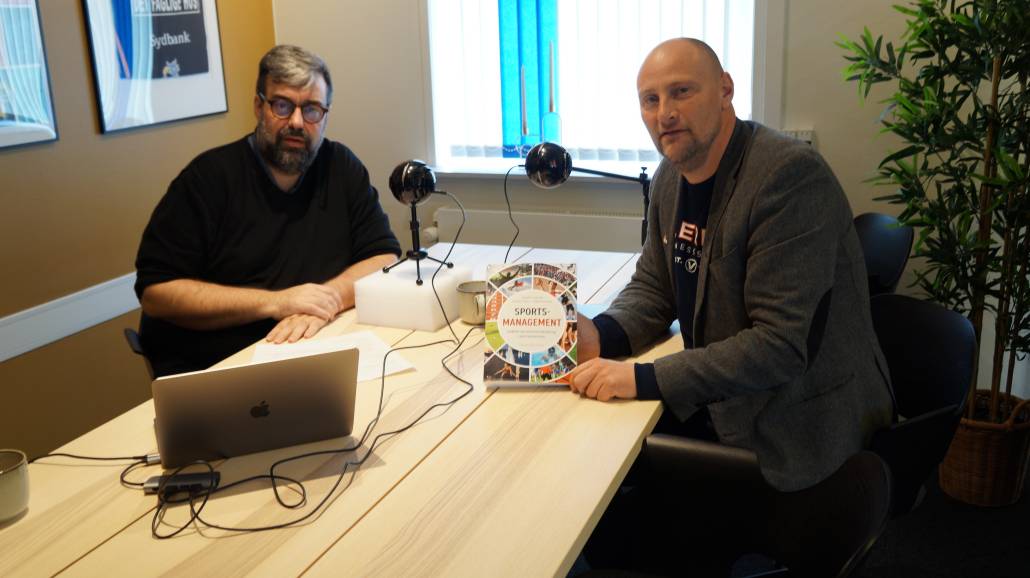
Sports management
6. May 2022
Sports potential requires insight and resources
There is a lot of room for improvement if professional sports clubs bet on the total experience for fans and spend sufficient resources on utilising data and knowledge.
We are in a better place than five or ten years ago. There are several sports companies and associations that recognise data. It’s a step in the right direction, but the balance between the strategic and the cultural consciousness must be sharper, says Kenneth Cortsen, who is a Ph.D. and sports economist and leads Sports Management programme at the UCN University College in Aalborg.
He has co-written a book on sports management and points out that there is great potential, and often also the goals and the will in sports companies. But the effort does not always live up to the ambitions.
Total experience
Several clubs need to look at the organisation. There is too much sub-optimisation going on. Kenneth Cortsen is calling for a sports industry where the big picture is kept in mind. Otherwise, the classic thing happens that culture and habits eat up the strategy.
Sports companies can work with the concept of total experience to great advantage. The drama on the pitch is important, but the total experience is about all the peripheral services with stalls, fan zone, etc. The total experience extends beyond the match. You should deliver some of the consistency modern fans expect, says Kenneth Cortsen.
He is not very interested in American sports. But it’s still always a great experience to come to an American stadium or arena because of the good overall experience. This is important because fans are the engine that drives the world of sports and the commercialisation of sports that is needed to fund the clubs.
Digitisation and strategy
Digitisation can help create the coherence between what happens on the field and the game off the field. That realisation must start at the top. The best clubs have sports management that sets direction and hires people who can fill knowledge and competence gaps in the organisation.
There are good role models. As examples of strategy, insight and execution playing together, Kenneth Cortsen points to Aalborg Handball, Aalborg Pirates, and the entire Ice Hockey Metal League in Denmark.
Elsewhere, the big picture is lacking at the strategic level. Setting goals is not enough. Effective execution requires that you have enough strength and recruit the right people who both know how to analyse data and have insight into the sport. The combination is crucial.
The problem is that now a club agrees to some plan about the use of data, without them having familiarised themselves enough with what that means. Clubs have gained more and more data over time, but I’m still not seeing them take existing data and set in motion processes that can strengthen their core business. Unfortunately, this is often combined with resource scarcity. There is more focus on the upcoming match, says Kenneth Cortsen.
Behavioural economics
Sports economics is different from other industries. Emotions are a strong aspect. You move something in people and a central part of translating it commercially is behavioural economics. One needs to understand what motivates fans and makes them stay longer and buy more physically or digitally. UCN has participated in a cluster analysis of fan behaviour. It shows that some want more convenience, e.g., with parking, or better food and good seats – and they will pay for it. Kenneth Cortsen says that an example of this is the kind of data that Venue Manager’s solutions can give the clubs. It’s not just about the number of tickets sold, but who buys them, how they buy them, when and why. Using that data properly can strengthen the relationship between the sports business and fans, and better reach the audience.
Book (in Danish): Sportsmanagement – Ledelse og kommercialisering i sportsbranchen, af Kenneth Holm Cortsen, Michael Hehr og Renate Nielsen: Sportsmanagement af Kenneth Holm Cortsen m.fl. (hansreitzel.dk)
See more about how Venue Manager can advise on and help with digitisation strategy.

